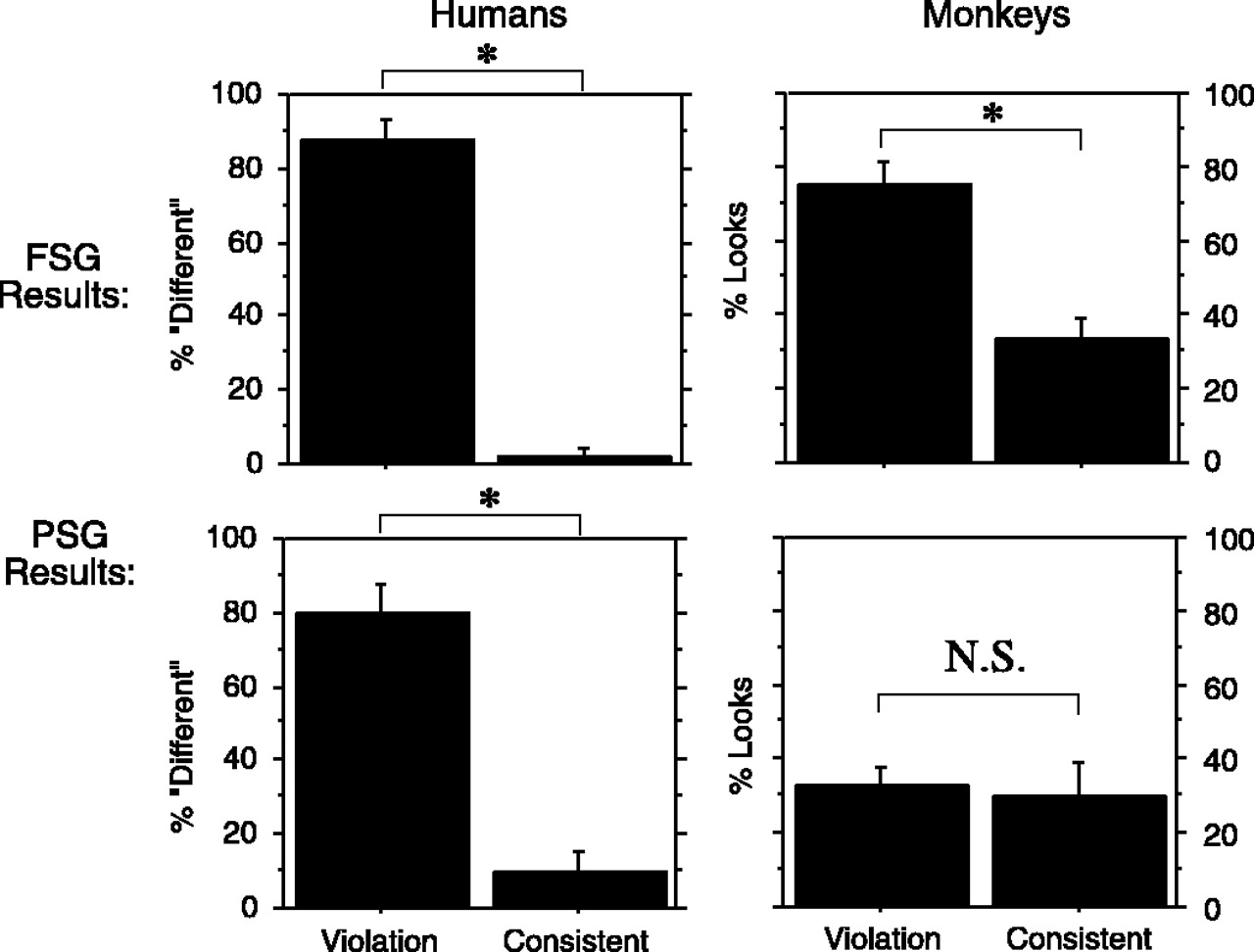January 16, 2004
Language in humans and monkeys
The current (January 16) issue of Science magazine has a fascinating article by Tecumseh Fitch and Marc Hauser entitled Computatational Constraints on Syntactic Processing in a Nonhuman Primate, and an equally though-provoking "Perspective" piece by David Premack entitled Is Language the Key to Human Intelligence?
Anyone interested in the biology of language should read both. I'll see if I can find accessible copies for those without subscription access to Science. Or you could (shudder) go to the library...
Fitch and Hauser's abstract:
The capacity to generate a limitless range of meaningful expressions from a finite set of elements differentiates human language from other animal communication systems. Rule systems capable of generating an infinite set of outputs ("grammars") vary in generative power. The weakest possess only local organizational principles, with regularities limited to neighboring units. We used a familiarization/discrimination paradigm to demonstrate that monkeys can spontaneously master such grammars. However, human language entails more sophisticated grammars, incorporating hierarchical structure. Monkeys tested with the same methods, syllables, and sequence lengths were unable to master a grammar at this higher, "phrase structure grammar" level.
I believe that the techniques they used grew out of methods developed by Saffran, Aslin and Newport for testing the abilities of human infants to learn stochastic grammars of various sorts. In any case, the stimuli and details of the testing procedures are available from Science online.
The basic method is to expose the subjects (whether humans or tamarin monkeys) to a body of examples generated by a certain kind of artificial grammar, and then to see how they react to new examples consistent or inconsistent with that grammar. This is actually done by using two different grammars in a symmetrical way on two different subject populations. The key result is shown in the figure below (their Fig. 2):

One should be careful not to overinterpret these results. [Update: read this to see why.] I have no doubt that the observed effect could be modeled (e.g. using connectionist techniques) as a quantitative difference in capacity rather than a qualitative difference in accessible grammar level. Still, the experments are suggestive.
Premack opens his Perspective by asking:
Dobzhansky's quip "All species are unique, but humans are uniquest" raises the question: Is it language, the symbol system that evolved only in humans, that makes humans the "uniquest"?
and closes it by answering:
Human intelligence and evolution are the only flexible processes on Earth capable of producing endless solutions to the problems confronted by living creatures. Did evolution, in producing human intelligence, outstrip itself? Apparently so, for although evolution can do "engineering," changing actual structures and producing new devices, it cannot do science, changing imaginary structures and producing new theories or explanations of the world. Clearly, language and recursion are not the sole contributors to human uniqueness.
with a lot of interesting stuff in between.
[tip from Fernando Pereira]
Posted by Mark Liberman at January 16, 2004 02:42 PM